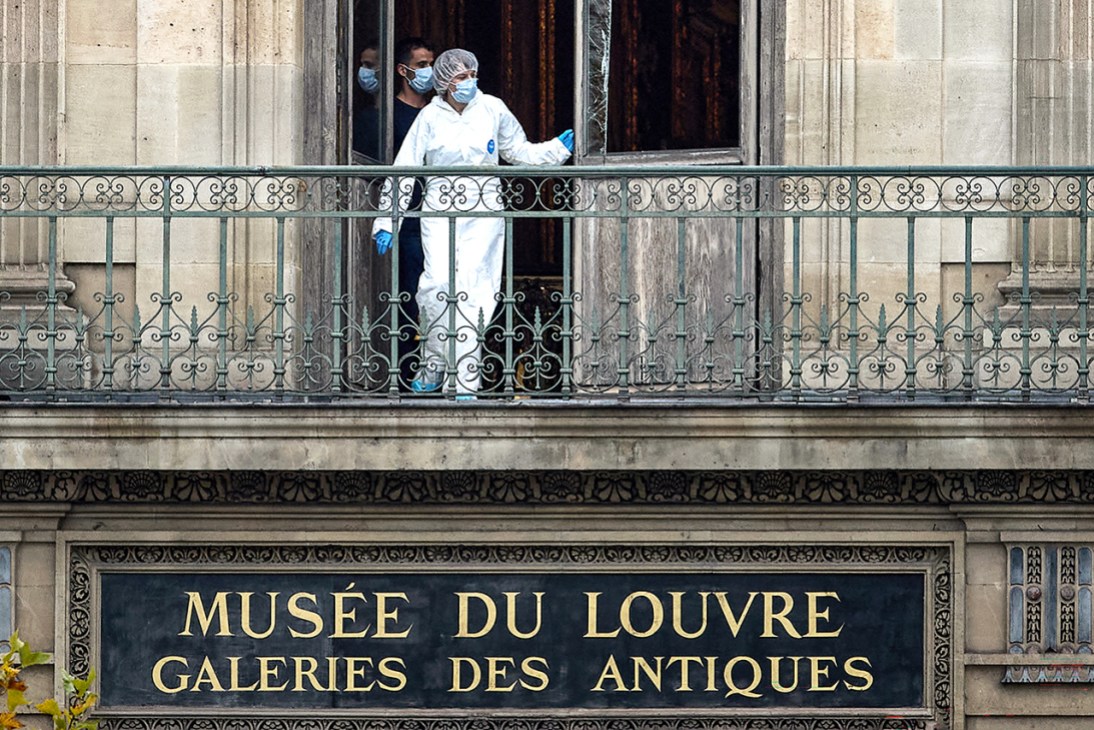The Louvre robbery was embarrassing – but the gallery shouldn’t be turned into a secure military base
The front pages are calling it the heist of the century. Even as Paris welcomes the world’s collectors, gallerists, artists and design brands for a series of major dates on the art calendar, it’s all that the French capital has been talking about. While toasting to the gall of the Louvre’s robbers over a vesper martini at Cravan after Design Miami Paris or making Arsène Lupin quips between the booths at Art Basel Paris might sound like fun, there’s now a real danger to the capital’s cultural cachet. Sunday’s theft of French crown jewels by power-tool-wielding thieves might have given newsrooms a few good headlines but the long-term consequences could be grave for the city’s visitors if the authorities overreact.
There has predictably been a lot of noise in the media and French politicians have been lining up to blame each other for the incident. This could push decision-makers to vastly increase the Louvre’s security measures in the name of preventing anything like this from happening again. Though it’s true that some improvements to security are needed, locking down the 73,000 sq m institution would hinder its primary function: to welcome the public.
It is the duty of museums to make knowledge and humanity’s great achievements accessible to all. Visitors should feel drawn in and inspired, not scrutinised by suspicious guards. Places such as the Louvre already suffer from the sheer volume of their visitors, which limits access to their treasures; advance online bookings and tedious lines are now a prerequisite. Tightening security will only lengthen waiting times and potentially put people off. Transforming the world’s most visited museum into Fort Knox would not only be impractical and expensive – it would also be antithetical to its raison d’être.
A graver concern is that the Louvre might decide – as some French museums already have in recent years – to replace priceless originals with facsimiles. Nobody wants to see such a storied institution turn to the Madame Tussauds model.

Jewels are riskier to display than other artworks – as well as being very portable, the gemstones and precious metals that make up a necklace or a tiara can be taken apart and sold piecemeal (not something that could be said for the “Mona Lisa”). But authorities shouldn’t let criminals intimidate them into removing important cultural artefacts from the public’s eye. Not only would displaying copies make the past feel more remote than ever, but it would also signal that society cannot be trusted with the genuine articles. That’s not a message that a museum such as the Louvre can afford to send.
There’s no silver bullet but museums could start by ensuring that more of their rooms have surveillance cameras. And there are technological solutions too: for example, devices that diffuse a substance that can invisibly mark a particular piece and cling to thieves for weeks. Though unnoticeable to museumgoers, such forensic markers would make theft far more difficult and act as a deterrent.
In the days to come, we should all hope that as well as arresting the culprits and recovering the loot, Parisian authorities – whether at the museum or the Élysée – turn down the temperature and prioritise sensible security improvements that don’t risk making one of the world’s key cultural touchstones a less open, less trusting place.
Simon Bouvier is Monocle’s Paris bureau chief. For the upcoming November issue our culture editor followed special investigators on the hunt for Nazi-looted works of art. Subscribers can read a preview here.



